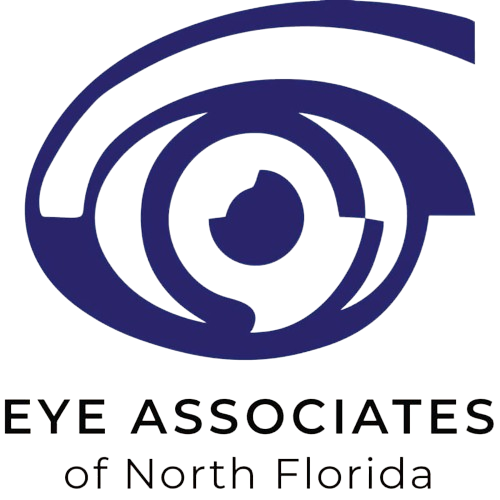Are Dry Eyes Seasonal?
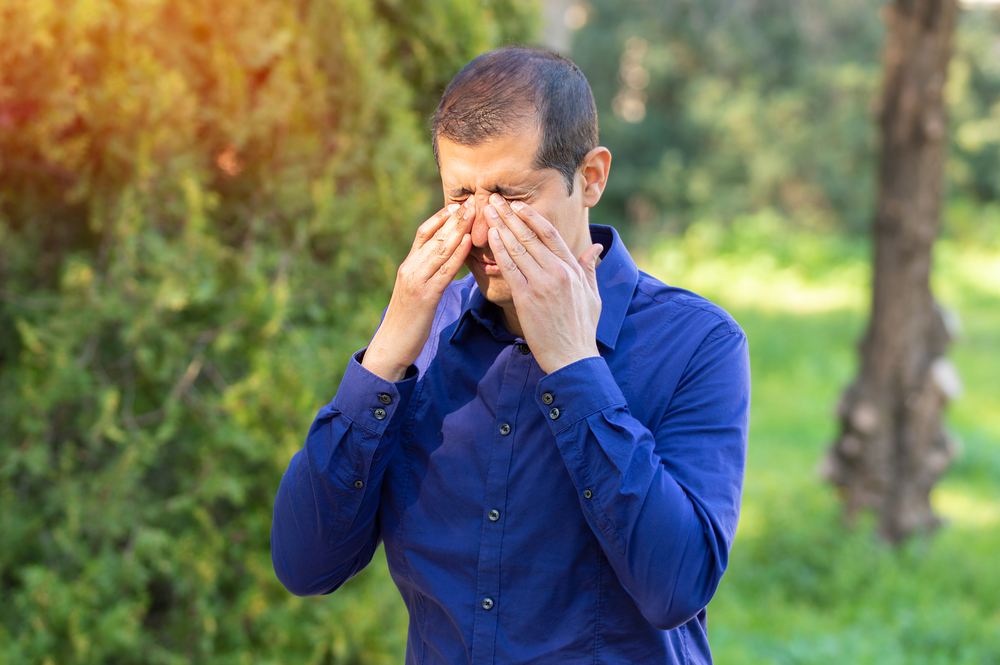
If you experience dry eye symptoms periodically, you may notice a pattern when they flare up. Dry eye isn’t an inherently seasonal condition, but environmental factors related to weather changes can certainly contribute to symptoms.
A change of season could trigger dry eyes, as could outdoor temperatures or pollen counts. Keep reading to learn more about dry eye and whether or not dry eye symptoms can be seasonal!
What is Dry Eye Disease?
The root cause of dry eyes is often a lack of proper lubrication on the eye’s surface. Eyes need a multi-layered tear film to moisturize and protect them.
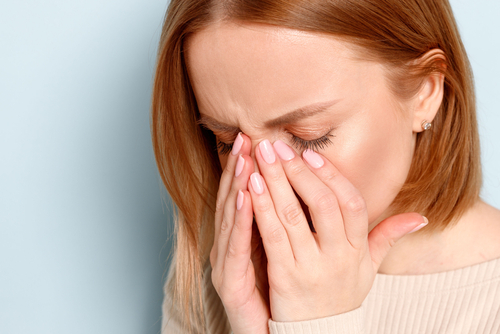
If your eyes don’t produce enough moisture for the tear film, the surface of your eye will feel dry and uncomfortable. Without the tear film to flush away bacteria and debris, your eyes will also be more susceptible to injury or infection.
Common symptoms of dry eye include:
- A dry or gritty sensation
- Burning or stinging eye
- Eye soreness
- Watery eyes
- Redness or swelling of eyelids
- Mucus or discharge from the eyes
Dry eyes can also affect your vision. You might notice vision problems, including:
- Intermittent blurry vision
- Excessive or frequent eye fatigue
- Excessive light sensitivity, which can cause trouble driving
If you notice symptoms of dry eye, it’s best to schedule an appointment with your eye doctor to determine the root cause.
What Causes Dry Eye?
The tear film consists of several layers of fluids: fatty oils, water, and mucus. Typically the eyes produce the right balance of fluids for lubrication and protection.
However, there can be imbalances in the tear film, which can lead to chronic or intermittent dryness. Risk factors for dry eyes include:
Age
As you age, your eyes may not produce tears as efficiently as they used to when you were younger.
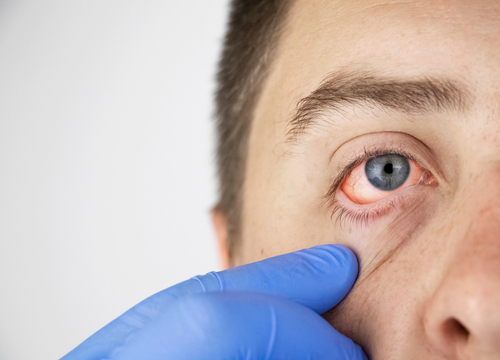
Gender
Women are more likely to develop dry eye disease than men. This is partly due to hormonal changes related to pregnancy, birth control pills, or menopause, which can impact tear production.
Diet and Lifestyle
Tobacco use can increase the risk of dry eyes. Certain nutritional deficiencies, such as a diet low in vitamin A, can affect tear production.
Increasing your intake of omega-3 fatty acids may reduce the symptoms of dry eyes.
Medical Conditions
Dry eye symptoms are associated with autoimmune diseases, such as lupus, scleroderma, or thyroid disease.
Certain Types of Vision Correction
People who have a history of wearing contact lenses or past refractive surgery may be at higher risk of dry eyes.
Medication
Dry eyes can be a side effect of certain medications such as blood pressure medications, antihistamines, and prescription acne medications like Accutane.
How Do the Seasons Affect Dry Eye?
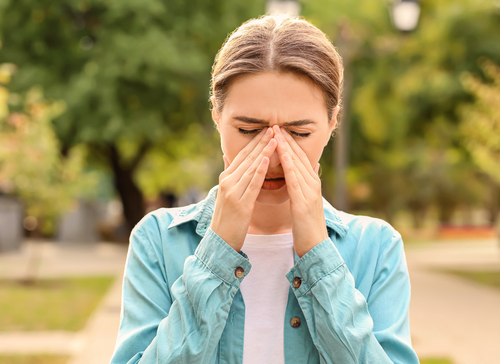
Seasonal changes can trigger dry eye symptoms. During the spring and summer, changes to the environment indoors and outdoors can increase dry eye symptoms.
You might notice dry eyes due to:
- Air conditioning
- Dusty or windy conditions
- High temperatures, particularly with low humidity
- Seasonal allergies
In the winter months, low humidity indoors and out, dry air from heating systems, and blustery outdoor weather can also increase eye dryness.
What Are the Treatments For Dry Eye?
There are a lot of options for managing dry eyes. One of the first helpful steps is to understand what causes you to have flare-ups.
This can allow you to avoid triggers or be prepared with lubricating eye drops if you can’t avoid them. You can also try preventative measures to minimize symptoms, such as:
- Run a humidifier at home or work
- Don’t sit near fans or air vents
- Drink plenty of fluids and use lubricating eye drops regularly
- Take periodic breaks when reading, using the computer, or any tasks that require sustained eye work
- Position your computer screen or handheld device below eye level.
If your dry eyes don’t respond to measures like these, make an appointment to see your eye doctor. You may need a complete eye exam to determine the cause of your dry eye symptoms.
Once your eye doctor understands what’s causing your symptoms, they can develop a treatment plan to protect your eye health and make you more comfortable.
Prescription treatments for dry eyes include:
- Prescription eye drops to control inflammation of the eyelids and cornea
- Medication that increases tear production
- Insertion of punctual plugs to block the tear ducts and prevent the loss of tears
- Special contact lenses that help hold moisture close to the eyes
- Treatment such as LipiFlow, a thermal pulsation device that unblocks tear glands to improve tear production
Taking care of dry eyes will make your eyes feel more comfortable. It will also reduce the risk of infection or injury caused by damage to the delicate surface of the eye.
